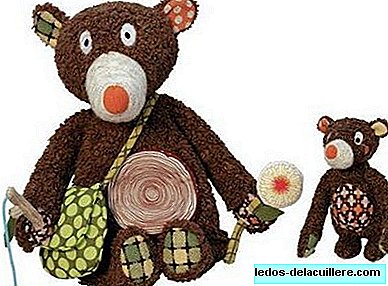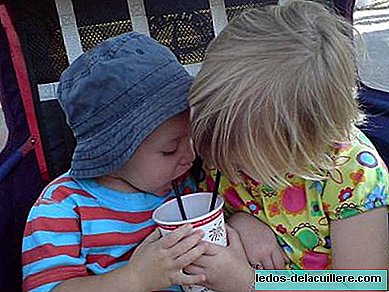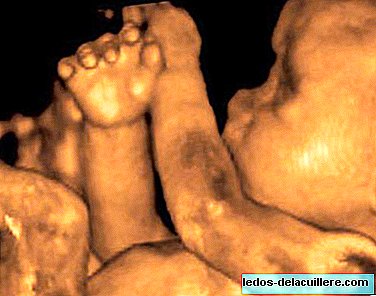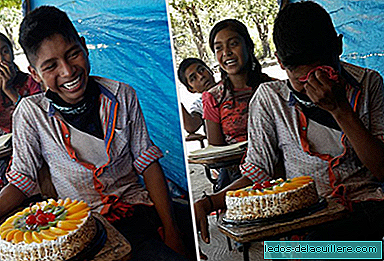
Death is a taboo subject that probably arises these days for the first time in the family environment, with questions from the little ones, who see how All Saints' Day is celebrated. Talking to children about death is not easy, but as part of life the subject should not be excluded from a conversation to answer your questions or concerns.
What we tell our children about death or the time we choose to do so, will depend on their ages and experiences, as well as our own experiences, beliefs, feelings and circumstances. The conversation may arise from news, a ceremony, the presence of a tradition (we light candles, we bring flowers to the cemetery ...) or a traumatic event when the death of a family member occurs.
In any case, as we saw in some tips on how to talk about death, it is about not having the subject as taboo, talking with simplicity and to the extent of their possibilities of understanding and what they ask us.
The children already know about death
Children are aware very early of what death means, they see it in their environment with insects or dead animals, those little birds or those ants, the flowers ...
What if we allow children to talk with us about deathAbout these "small" deaths, we can give them the information they need, prepare them for a crisis and help them when they are sad. After all, the deaths of an animal and a person are not so different.
It may take time for a child to fully understand the ramifications of death and its emotional consequences, and we must explain several times why people feel sad when someone dies, why we cry, why we don't feel like playing ...
But while it may cost you to understand some issues, a child may realize that death means a separation, and the concept of parental separation and lack of care scare you, with which they can be uneasy before the possibility of the death of the parents. So, the best we can do is reassure them by letting them know that we hope to spend a lot of time with them taking care of them and accompanying them.
How not to talk about death to children
It is not convenient to talk to children about death as a rest or a dream, as it could confuse them and relate to their own dream and be afraid of the dark or when they go to bed.
Other undesirable associations are those of death-disease and death-elderly, because this association is not always fulfilled and certain circumstances could scare or surprise children (their own minor illnesses, the death of someone young ...).
You should not hide feelings but externalize them and explain to children why we feel sad, and encourage them to communicate their emotions.
If the family has religious convictions, it is assumed that throughout the life of the child they have been instilling these beliefs and talking about related issues, because otherwise if the child has never heard, say, for example, the "heaven" or of God, you can be confused and not understand what you are talking about.
If you have the beliefs that you have, the death of a loved one is always shocking and sad, so the expression of pain should not be hidden or repressed.
Remember that our own feelings and attitudes about death and loss of loved ones are transmitted to the child, whether or not we try to camouflage our true feelings. The way we talk and share our experiences with the child may be what he remembers most.
Definitely, talk to children about death It is a question that will arise sooner or later in our lives and that we have to take naturally and always adapting to their ages and doubts.












